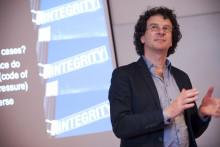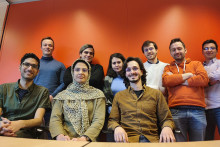The relatively recent scandals – for example, the one concerning now infamous social psychologist Stapel, who fabricated most of his published data - made people ask if there is something in our own society that makes it easier for people to commit fraud.
Direct link to commercial companies
Nowadays, science is unfortunately not only a pure search for the truth. Scientists often need to find a balance between their academic goals and the need to be economically profitable. Science and scientists are often directly linked to commercial companies, and therefore their motivation is not only academic, but also economical. This influences the direction the research can take and also the publications that can be made.
On top of that, researchers are under a huge pressure these days – the value of their work is measured by the number of their publications. It´s almost impossible for them to publish negative results and, of course, the whole modern society stresses the importance of a person´s career. All these things may motivate people to reuse, alter or even fabricate data.
However, the topic of scientific integrity is not only related to obvious ethical failures such as publishing of false data. Prof. Verbeek pointed out that there is also a rather large “grey zone”, which contains a number of other issues.
Accessibility of research data
There are a number of internal issues regarding scientific integrity - one of them being the accessibility of research data. On one hand, people should be able to make sure that the data is real, reliable and traceable. On the other hand, keeping all data available also makes it vulnerable to possible misuse.
Another potentially problematic issue might rise from collaboration with other scientists. In case of a team work, who should be the one to get the most credit and be mentioned as the main author? And if you are involved in the research, but do not write the paper – are you still entitled to be acknowledged as an author? None of these questions have one clear and definite answer.
Another issue related to scientific integrity appears in the context of publication practices – for example, copying of previously published material or not mentioning references or quotations of other authors.
Pressure
The pressure on scientists to produce large quantities of – preferably significant – results and publications could also be the reason for self-plagiarism, which stands for reusing of the author´s own previously published articles or papers. Or it may lead to “fishing”, a strategic selection of data to make the research results appear more interesting. Scientists might also sometimes resort to “cutting” of the research into many small parts in order to produce more publications, or to so called “massaging”, which refers to working on the research until the required results appear.
The right ethical solutions concerning the above mentioned issues were also discussed during the workshop and the solution should be rather simple: a complete openness about the results and their reliability.
Social aspects
But there are also external, social aspects of scientific integrity. No matter what type of research you do, you always need to think of the possible future impact of your results. You can anticipate the influence of the technology you are developing and predict its impact on people´s lives. No product is purely functional, it influences how people live and think. And each researcher should keep this in mind.
All these above mentioned problems and issues show how important it is to address them and to focus on the topic of scientific integrity. Also the PhD students themselves, at the beginning of the workshop, generally agreed that they could use more guidance on the subject.







